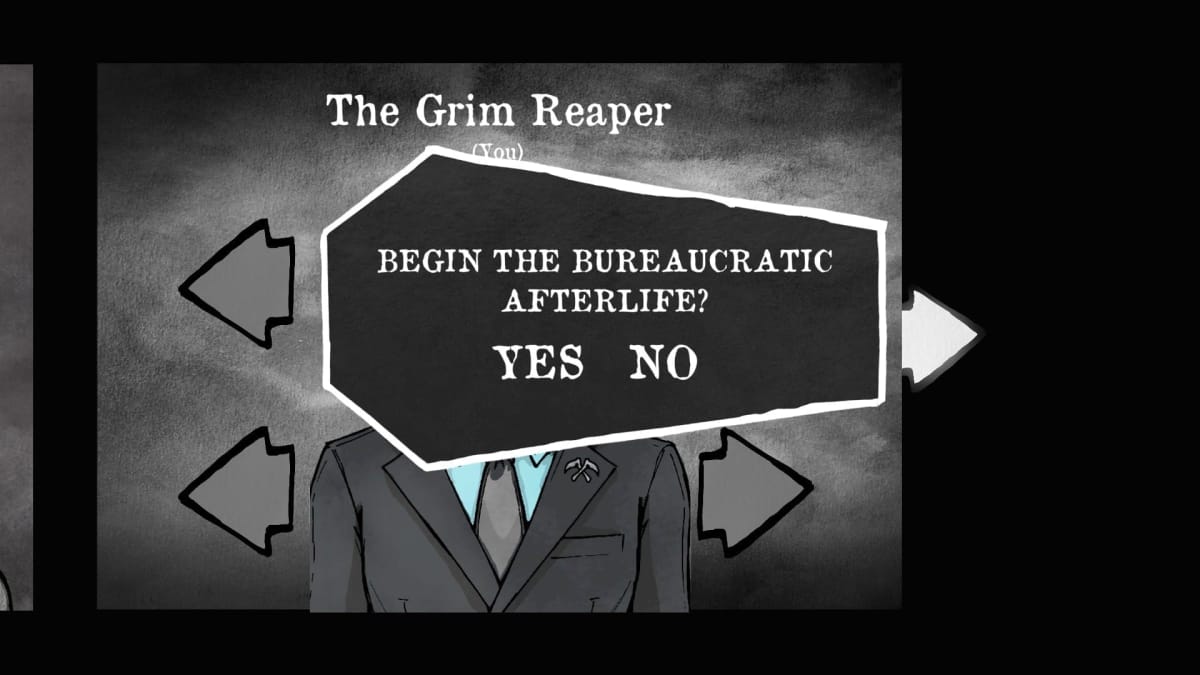For millennia, humans have been speculating about death. About the nature of it. Do you get to bring your possessions to a fabulous afterlife like the ancient Egyptians dreamed of? Are the Greek Fields of Elysium the true paradise? Perhaps the bible got it right and there’s a Heaven and a Hell? Or maybe the afterlife is just a continuation of the corporate bureaucracy that permeates every aspect of life in the 21st century, only subject to the whims of a capricious Grim Reaper who’s been given an all-powerful marker. At least, that’s what Placeholder Gameworks’ debut title Death and Taxes would like you to think.
Welcome to the Job!
Death and Taxes assigns you the role of a newly created Grim Reaper. Reporting to an agent of Fate, and his impawsibly cute cat named Lady Pawdington, you are dragged from your rest each “day” to determine who lives and who dies, based on a set of guidelines given to you by Fate. Mark the profiles that you think deserve death and those that deserve life, and see the chaos wrought upon the world by your decisions, in the form of Twitter-esque updates on Cawker.
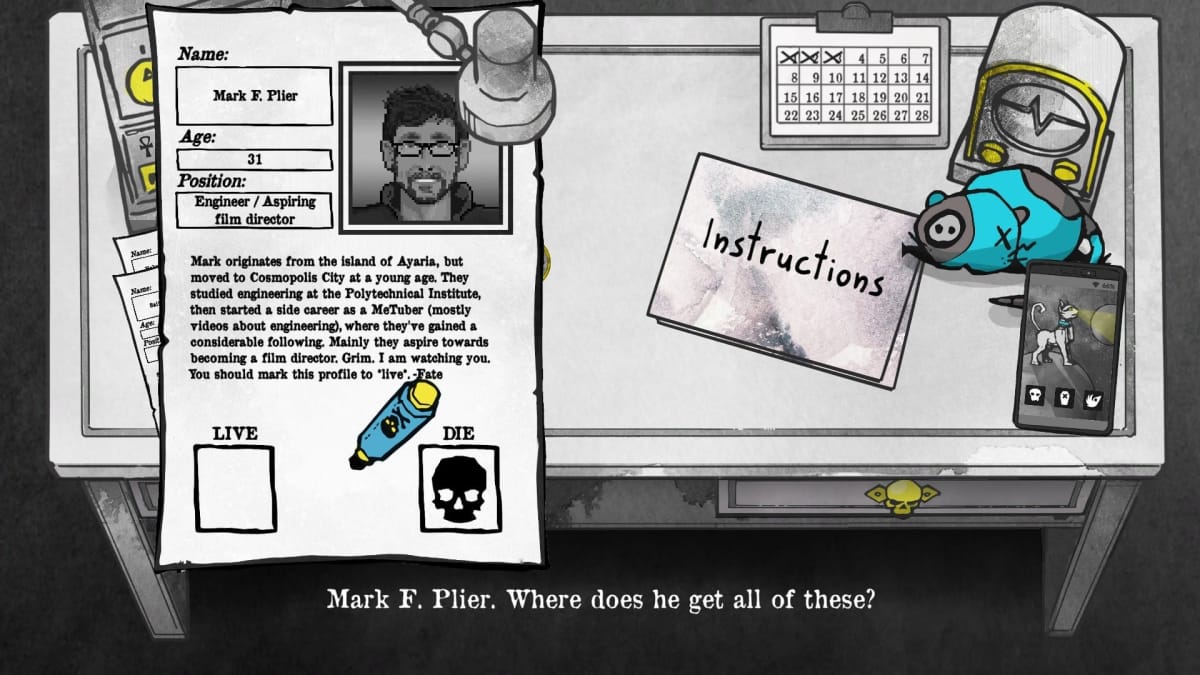
With a variety of conversational responses you can choose to give your boss, your reaper’s personality can be whatever you want it to be. Sassy, bored, vindictive, compliant, or anything in between. As with the fate of the world, the choice is yours! Your superior, on the other hand, simply referred to as Fate, is dry and by the books, revealing more of himself as the game draws on.
The only two other characters (not counting the speechless Lady Pawdington) are Mortimer the pirate and purveyor of fine, stolen goods, and the voice in your mirror who claims to be Death itself. Jury’s still out on whether or not she’s telling the truth, as her entire personality can be summed up with the word “mysterious.” On the other hand, Mortimer is an absolute riot. Spend your ill-gotten gains at his emporium, buying new widgets for your desk to spruce it up. Or, buy any number of hilarious and pop-culturally relevant costumes for you to dress your reaper in if you so choose. From Gerard Way to Aziraphale to the Eleventh Doctor, Mortimer has something for every occasion, and a bizarre anecdote to go along with it.
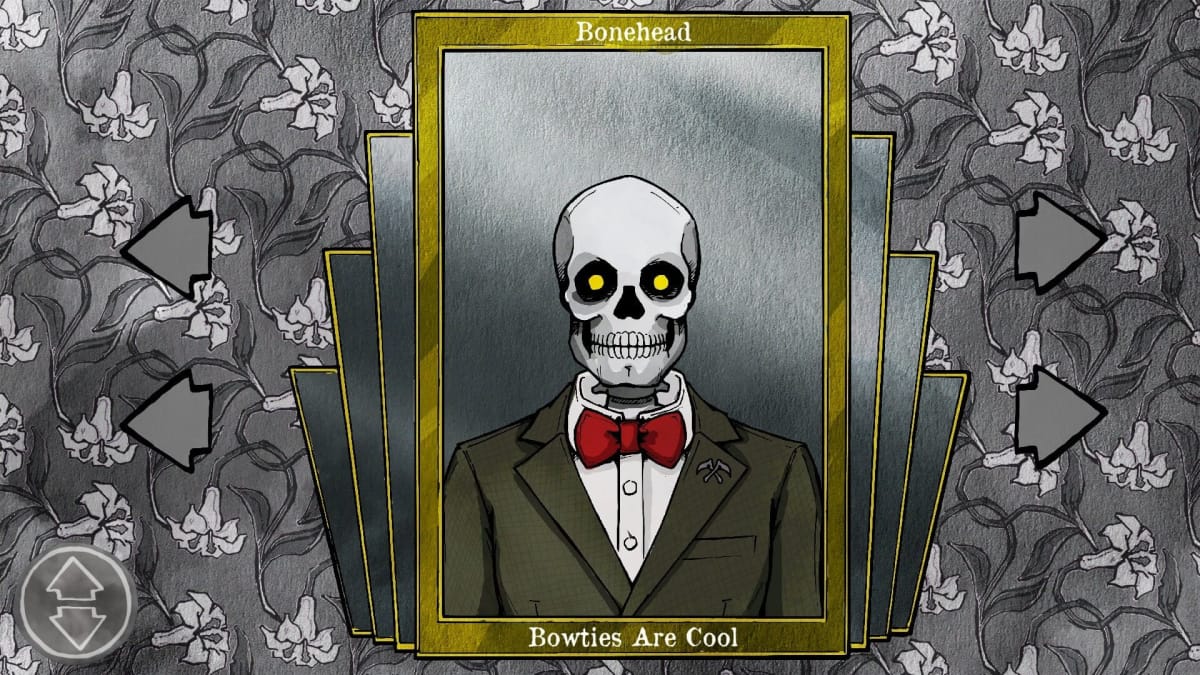
The gameplay is very straightforward. Each “day” (explained not to be strictly 24 hours of mortal time) you wake up, take the elevator down to the office from your personal quarters, and sit at your desk and mark mortal profiles for death or life. When you’re done, hit the magical fax machine and then hop up the elevator again for your performance review from Fate before moseying to Mortimer’s or switching up your look in the wardrobe room.
Ferryman of the River Styx
Sounds simple, right? Yes and no. While it’s very easy to get the hang of the game, actually winning it is another matter entirely. Every choice you make, be it life or death, has a rippling effect on the human landscape. The game calculates certain parameters that go up or down accordingly, and if you’re not careful you’ll find yourself fired for insubordination or the cause of the apocalypse. Without giving too much away, there are other forces at play in the plot, which is why the balancing act is so tricky.
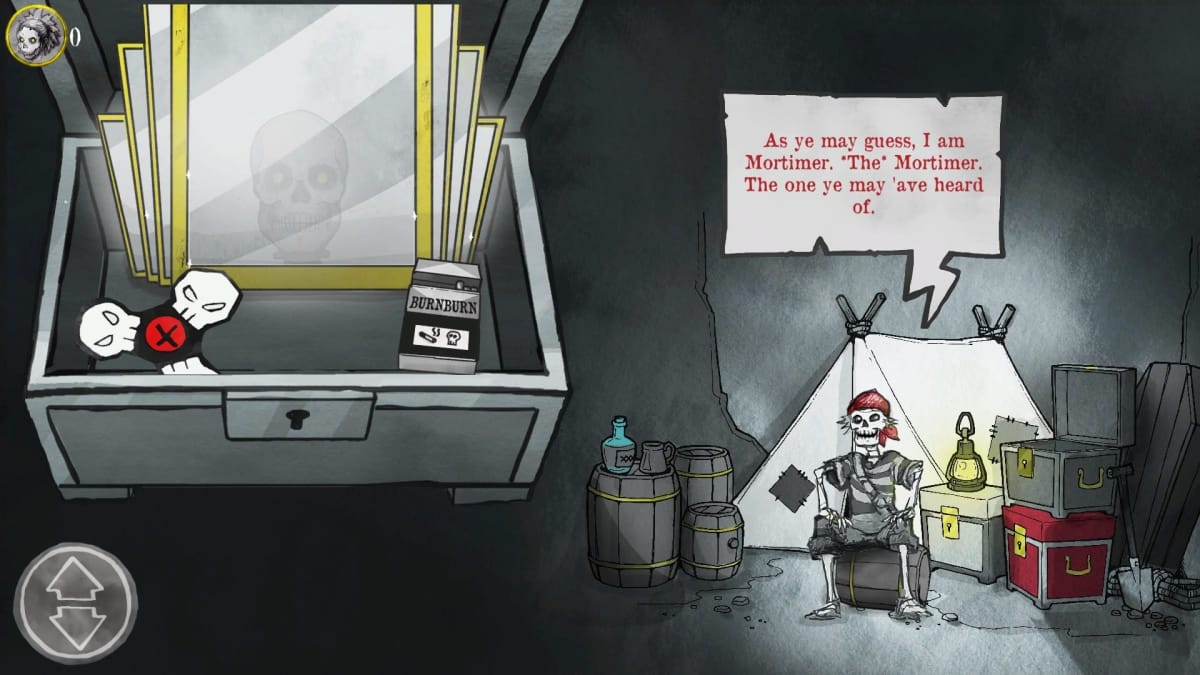
All in all the game clocks in at about two hours long per playthrough. Fortunately, there’s New Game +! If you think you can get better (or worse) results than last time, you’re more than welcome, nay, encouraged, to try again. Besides, who’s to say this was really your first time through anyway? As a bonus, New Game + includes more snarky backtalk responses to your boss.
In addition to being a funny, somewhat satirical romp, Death and Taxes does touch upon some darker subject matter, somewhat unavoidably. We get some philosophizing on the nature of life and humanity, theories on the universe and the question of how much does one person really matter in the grand scheme of things? While some of the philosophy is rather pushed down your throat at points and rather bluntly worked in, it still works well for the game, making it much more memorable than a dime-a-dozen, dark comedy.
The art and music of Death and Taxes are both quite appropriate for the subject matter. The soundtrack consists mostly of smooth jazz and elevator music, and the art is mostly in black and white with splashes of color. It also looks like it’s been drawn with a chunky sharpie marker and a few finer details added in. It’s minimalistic yet stylish, once again working to set the game apart from the run of the mill, stock-art peers.
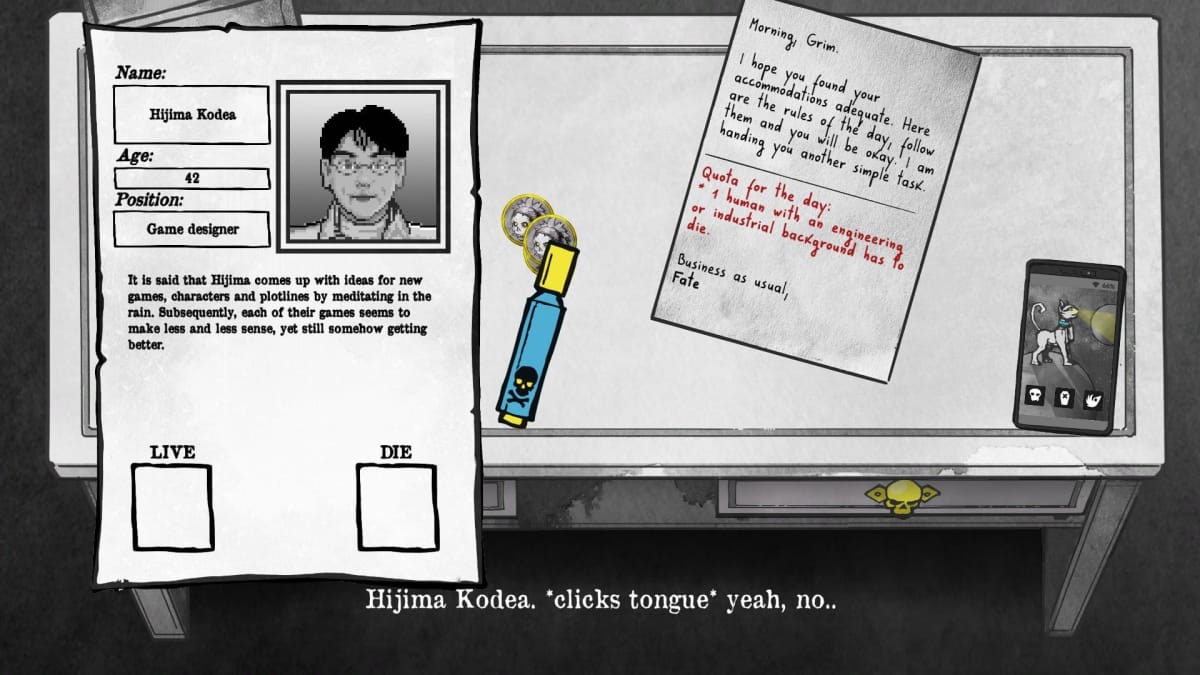
Other than some too-blunt philosophy, Death and Taxes' only real flaw was some minor technical glitches. There are a couple of examples of art stacking on top of each other, particularly in the title screen, and several instances of the audio dialogue not quite matching up with the on-screen dialogue. The few rough edges that the game has are more marks of a fresh developer than signs of deeper problems within the game itself, and easy enough to patch out in a few updates if necessary. For example, coins would always appear automatically on your desk in the morning, no matter where you moved the stack the day before, and it was cluttering but fine to work around.
While it’s a short romp, Death and Taxes packs a big punch. It’s smart and witty, while touching on deeper themes, and balances simple gameplay with difficult conditions for winning. Fortunately, Death and Taxes is much more fun either the dusty old saying involving the two or doing taxes. Not sure on Death though, that one’s still TBD.
TechRaptor reviewed Death and Taxes on PC using a copy provided by the developers.
Review Summary
Pros
- Clever Writing, Packed With Pop Culture References
- Easy to Learn Gameplay With Difficult Endgame
Cons
- Some Minor Technical Glitches
- A Few Rough Edges
Have a tip, or want to point out something we missed? Leave a Comment or e-mail us at tips@techraptor.net
